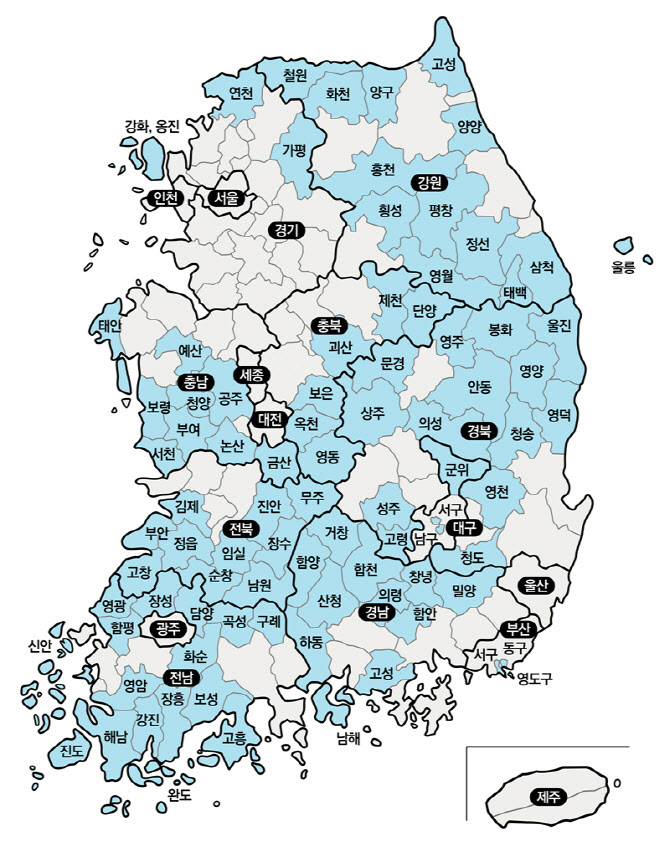|
“Anchor Industries Essential for Regional Employment”
Gregory Acs, Vice President for Tax and Income Support, noted, “Economic factors are important but can be short-lived. For sustainable growth, it’s also crucial that individuals and communities feel respected and have autonomy in decision-making.” He explained that in the U.S., revitalization efforts have failed when non-economic factors were overlooked, such as not reflecting residents’ preferences for investment or failing to address conflicts between long-time locals and newcomers.
Acs also argued that money alone can’t solve the birthrate issue, the key issue. “Of course, money matters, but it’s not everything. Countries like Poland, Hungary, Singapore, Japan, Finland, France, and even Korea have tried implementing financial incentives for childbirth, but results have been limited,” he said. “Most focus on financial incentives like tax credits, but raising children requires not just money, but also time, space, and social support.” He added, “While offering child allowances and tax credits is important, policies must also address housing, childcare, and employment so parents can spend more time with their families. Support for 3-generation households should also be considered to ease the burden of caring for both children and elderly parents.”
Regarding youth settlement and regional revitalization, Acs further advised, “Successful regions have ‘anchor industries’ or employers that provide a basic employment base and demand. The industrial base should be diversified to prevent collapse if one sector falters.“ He also highlighted, ”Entrepreneurship can also create jobs, but to encourage startups, financial support and regulatory streamlining are needed. We must also reduce the stigma of failure to foster ongoing innovation.”
He emphasized the need for social infrastructure?housing, transportation, hospitals, childcare centers, and community spaces. “Schools, religious organizations, and civic groups must work together to help newcomers build social networks and a sense of belonging,” Acs said.
Finally, he stressed the importance of social infrastructure, including housing, transportation, hospotals, childcare centers, and community spaces. He noted, “Schools, religious organizations, and civic groups must work together to help newcomers build social networks and a sense of belonging.”
|
Steven Martin, Senior Research Associate of Center on Labor, Human Services, and Population at Urban Institute, stressed the importance of policy continuity. He warned against simply copying policies from high-birthrate regions, arguing for targeted, evidence-based approaches to attract young people.
“Population policies rarely succeed, globally and historically,. A common problem is that governments don’t stick with them long enough,” Martin said. “Population policy takes time to show results, so frequent changes undermine public trust in the future.”
Martin also emphasized the need for scientific, data-driven approaches to encourage young people to move to the regions. “Just replicating policies from high-birthrate areas is unlikely to work. Young adults move for family, career, and personal reasons, so regional population policies must reflect these motivations both methodologically and conceptually,” he explained. The Urban Institute is currently developing quantitative methods to assess how regional migration policies impact birth rates.
At the upcoming Edaily Strategy Forum, Martin will present statistical indicators on △age-specific birthrates, △migration patterns of childless young adults, and △migration patterns of families with children. “Understanding when and where young adults form families can help set policy priorities and assess the likelihood of success for current initiatives,” he said.
About Speakers
Gregory Acs, Vice President for Tax and Income Support at Urban Institute
Holds a Ph.D. in Economics and Social Welfare from the University of Michigan and currently serves as the Deputy Director of Tax and Income Support at the Urban Institute. he led labor and income security research at the Congressional Budget Office(CBO) and served as Vice President of the Association for Public Policy Analysis and Management.
Steven Martin, Senior Research Associate of Center on Labor, Human Services, and Population at Urban Institute
Previously served as an assistant professor of sociology at the University of Maryland, College Park, and as a senior researcher at New York University’s Institute for Social Sciences. Since 2013, he has been a Senior Researcher at the Urban Institute.









!["청년 ''도시 선호'' 수용해야…빈집 철거해 도시 밀도↑"[ESF 2025]](https://image.edaily.co.kr/images/Photo/files/NP/S/2025/06/PS25061901218t.jpg)
![[단독]`전광훈 자금` 댄 보수 유튜버, 더 있었다…수천만원 송금 정황](https://image.edaily.co.kr/images/vision/files/NP/S/2025/08/PS25081101106t.jpg)



